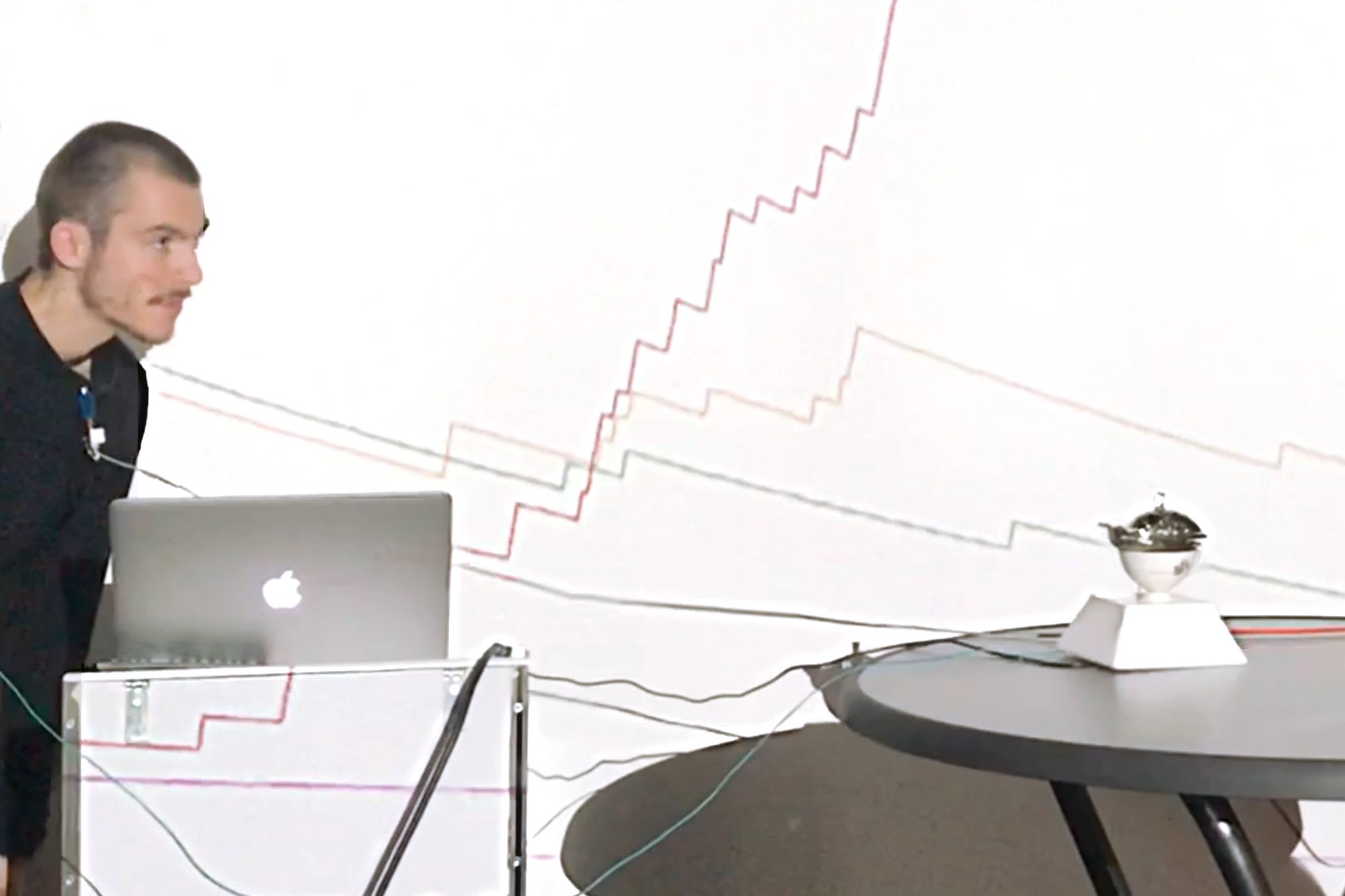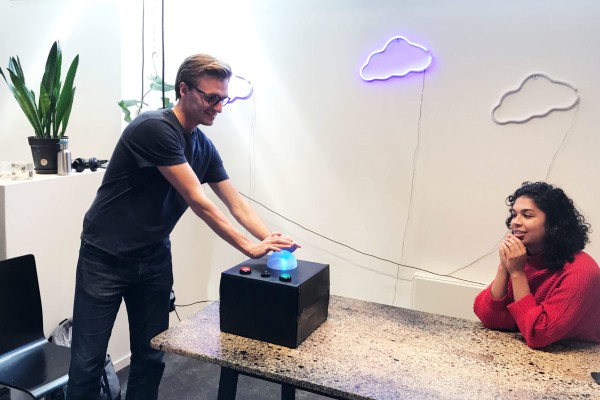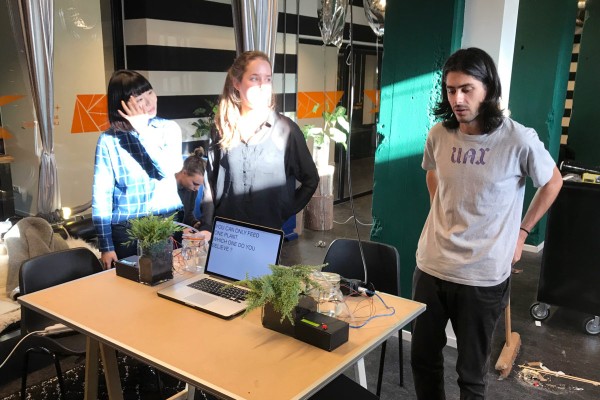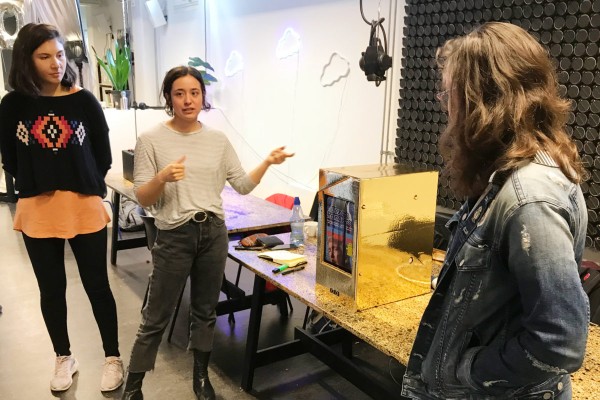
Communicating Objects
3-days workshop



Earlier this year, Adobe demonstrated VoCo: an application which, given a 40 minute recording of a person’s voice, can generate text-to-speech audio with a matching vocal signature. Not long after, Amazon’s Echo smart speaker sent audio of a couple’s private conversation to someone on their contacts list due to a series of misinterpreted commands. And more recently, it was revealed that Kinsa, a silicone-valley manufacturer of smart-thermometers, sold information to to third parties. This allowed, for example, Clorox to target advertisements for disinfectant-wipes toward areas with a known increase in the number of recorded fevers.
Taken together, these anecdotes point to some potentially troubling advances: that “Fake News” has the possibility to become much more fake; that the devices we communicate with may act in ways we don’t necessarily anticipate or understand, and that, even when working as designed, some devices may be operating to serve other agendas than our own. As our daily lives increasingly involve digital communication tools, often including run-ins with bots, algorithms and artificial intelligence, we have been placed in a situation of necessary questioning of the objects and services with which we interact.
During the course of this workshop, you will work in small groups to create ‘communicating objects’ which take the role of questioning, responding-to, or expanding-upon the current state of digital communication by addressing issues of authenticity, transparency, and trust.
Digital Prototyping
Digital prototyping platforms such as Arduino, Processing, and many others have lowered the threshold for creating experienceable technologies and digital interactions. A digital-prototype can become a design tool which allows us to question, criticize, speculate, and re-frame.
The 3-day workshop will be centered around hands-on creation, with the goal of producing working physical prototypes. After a short hands-on introduction to digital prototyping tools, you will form teams to create prototypes that question the way we communicate through (and with) technology. These prototypes can be critical agents of protest, celebrations (or warnings) of what-could-be-to-come, or provide a new way of experiencing current tools or services. With the tools introduced through a hands-on electronics workshop, and support of the mentors, the prototypes will be developed to a finished and working state by the end of the workshop.
Hackathon
The workshop will be an intensive workshop with a focus on prototyping and working with interactive electronics. Over the course of the three-days, we will adopt the format of a hackathon in which project ideas are pitched, working teams are formed, and projects are developed intensively over a short period. We will conclude with an informal presentation during which you will demonstrate the working prototype. .